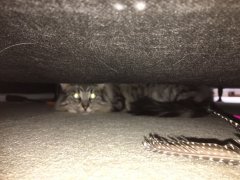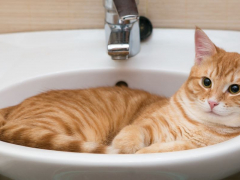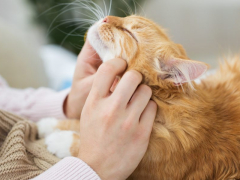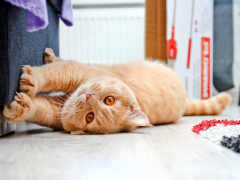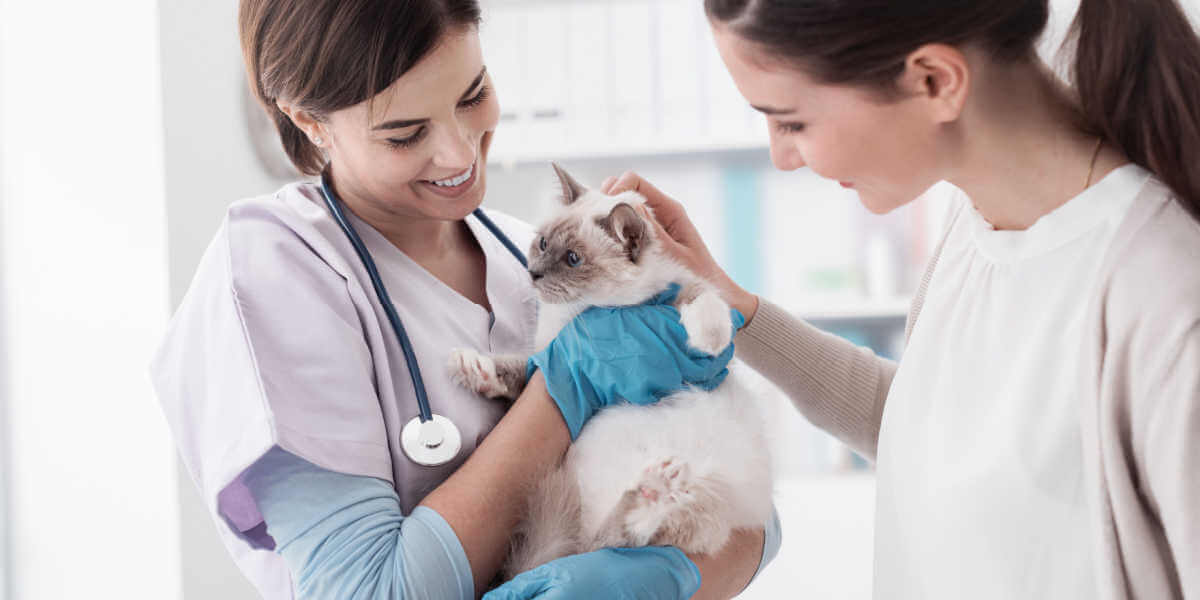
Veterinary visits, although essential for your cat’s well-being, can often be stressful and upsetting to cats. A trip to the vet may involve stressors such as cat carriers, car journeys, and other pets. Add injections and medications on top of all that, and you have a recipe for a stressed cat. This stress and upset may lead to cats acting differently after the visit and appearing like they don’t trust their owners. You might be wondering if you’ve lost your cat’s trust and if they’ll trust you again after the vet visit.
The good news is that your cat will definitely trust you after you bring them to the vet. They just need some time and understanding. We have plenty of tips to help the vet visit go as smoothly and stress-free as possible for your cat. With these tips and lots of love and patience, your cat will act like themselves again and trust you after the veterinary visit. Read below for more information on stress-free and positive veterinary visits.
Veterinary visits are essential to keep your cat healthy, but cats may find them very stressful and act distrusting towards their owners afterward. Cats are often stressed and upset after a vet trip, but with patience and understanding, they will act like themselves again. To prevent stress and distrust, make the experience as comfortable as possible. There are ways to ease your cat's anxiety when preparing to leave, traveling to the vet, and even during the vet visit itself. Cat-only veterinary clinics are a great option.Key Takeaways
The Veterinary Visit
Veterinary visits are essential for cats at all stages of life. They need their vaccinations, parasite prevention, neutering, and care for when they are sick or in pain. Veterinarians provide necessary medical treatment for our cats when they need it. They aim to keep our companions with us for as long as possible and to keep them as healthy.
However, cats can be stressed going to the veterinary clinic. This is similar to us not enjoying a trip to the doctor or dentist!
Cats like being in control of their environment. Their stress starts from the very beginning of their vet-going ordeal. They are put into a cat carrier, which is a very small enclosed space, and then put into the car. Car journeys tend to be very noisy, with loud music and general traffic noises. To top that off, some cats suffer from motion sickness (just like us), making the car journey even more unpleasant.
By the time the cat arrives at the vet, they are very stressed. If there are other cats and dogs in the waiting room, this is commonly even more stressful for cats, particularly if they aren’t used to dogs.
The cat is then examined by the vet, possibly receiving tablets and injections as part of their treatment. Cats don’t understand why they’re receiving this medicine but know that they feel pain or distress when they get them.
What Happens When My Cat Comes Home?
After all this unpleasantness, the cat is then taken home again in the confined carrier, and placed in a noisy car. As you can imagine at this point, they may be feeling very stressed. This will make them act differently from how they normally act at home. You may wonder if your cat will trust you again after a visit to the vet.
If you have other pets, they may act differently towards your cat because they smell the hospital and medicine. Separate them for a while if there are any signs of fear or aggression such as hissing and growling.
How To Reduce Stress for Your Cat
Veterinary visits don’t need to be stressful or traumatizing. There are many things that we can do to reduce stress for cats during the vet visit. This includes what happens before and after the visit. We want to keep the experience as positive as possible and have a happy cat at the end of it. We have some tips to help with this, starting with how to put your cat in the carrier.
1. Putting Your Cat in the Cat Carrier
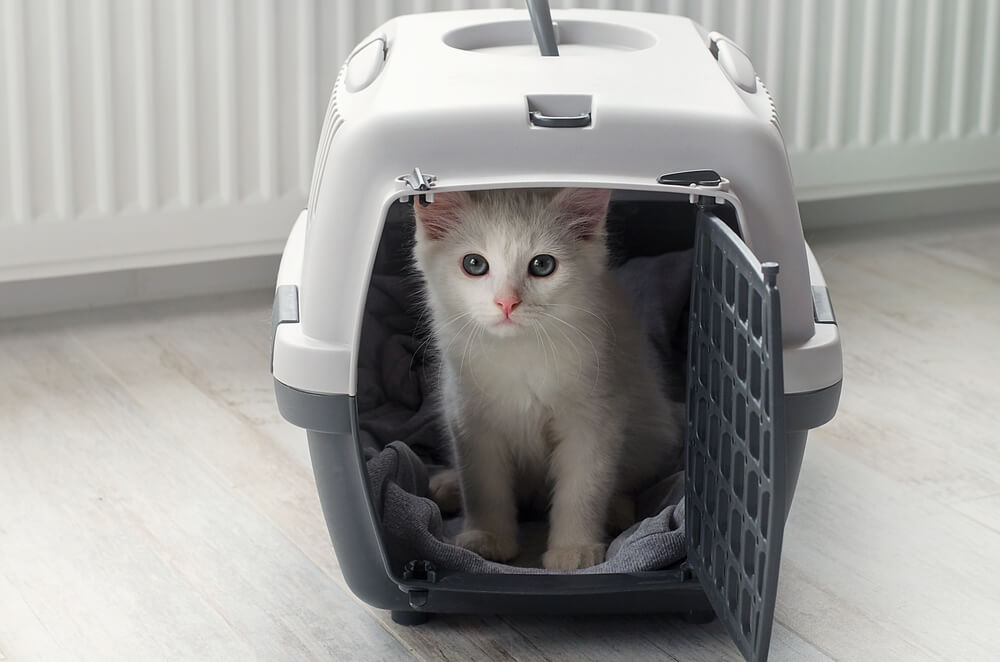
Allow the cat carrier to become a cozy refuge instead of associating it with the stress of a visit to the vet.
Traveling in the car can be very stressful for any cat. To reduce their stress, use an appropriate cat carrier that is big enough for the size of your cat. Cats should be used to the pet carrier before the veterinary visit, if possible. Do this by leaving the carrier out during the year and allowing your cat to use it as a cozy bed.
This will allow them to get used to the carrier and not see it as a scary experience. If you only take out the cat carrier when you bring your cat in the car to the vet, they’ll soon associate it with these visits and likely become fearful of the carrier.
Putting a familiar piece of your cat’s bedding in the base of the carrier will help to relax them, because it smells of home. You can spray their bedding with a synthetic pheromone spray (Feliway) 30 minutes before you put them in the carrier. These pheromones will help relax your cat and make them feel more secure in the carrier. Place your cat gently in the cat carrier and avoid any frantic movements or excessive force when doing this.
2. Travelling in the Car With Your Cat
Place the cat carrier in the footwell of your car or on the seat secured with a seatbelt. This will help prevent excessive movement of the carrier during the car trip.
Partially cover the carrier to prevent an overload of visual stimuli for your cat. Avoid any loud noises and try to book your appointment at a time when there will be minimal road traffic.
Cats that are motivated by food would enjoy some treats during the car ride and their veterinary visit. Avoid this if your cat suffers from motion sickness and discuss it with your vet prior to the car journey. Your vet may be able to dispense some medication to help with the nausea.
How To Reduce Stress at the Veterinary Clinic
When it comes to helping your cat relax at the actual veterinary appointment, we have a number of tips. First, find a vet that is cat-friendly and has a cat-friendly practice. You can also find fear-free certified vet clinics.
These clinics reduce stress during vet appointments by practicing gentle handling techniques and having pheromone diffusers plugged in around the clinic. They often have the waiting room separated between cats and dogs or have a “cats only waiting” room.
Cat-only veterinary clinics are also available and have the benefit of no barking dogs, or other pets in the waiting room that may stress our felines. They typically have many cat experts and vet techs on hand to give you advice on cat behavior and to provide cat visits for your kitty.
Cats that are particularly stressed in the veterinary clinic may benefit from sedative medication prior to and during the visit. Your vet can discuss this with you in more detail and recommend medication if they think it’s suitable, in your cat’s case.
When You Get Home…
When you get home, your cat may seem to not trust you after their visit to the vet. Be patient and understanding with them. Talk gently and reassuringly and give them space if they want it. You can try feeding them their favorite food or some nice treats (if permitted after their veterinary visit).
They will enjoy cuddling in their familiar bed and blankets which will smell reassuringly of them and their home. Spray pheromones on their bedding or plug in a synthetic pheromone diffuser in the home.
Owners – Keep Calm and Relaxed
As cat owners, we often underestimate the effect we may have on our cats. Our emotions rub off on our pets and they can sense when we’re upset or stressed. If you’re anxious about the veterinary visit, it’s likely that your cat will pick up on this, and in turn, worsen their own anxiety.
Even though it can be difficult, do your best to remain outwardly calm and relaxed during the whole visit and be mindful of your body language. This will help relax your cat and reassure them.
Final Thoughts
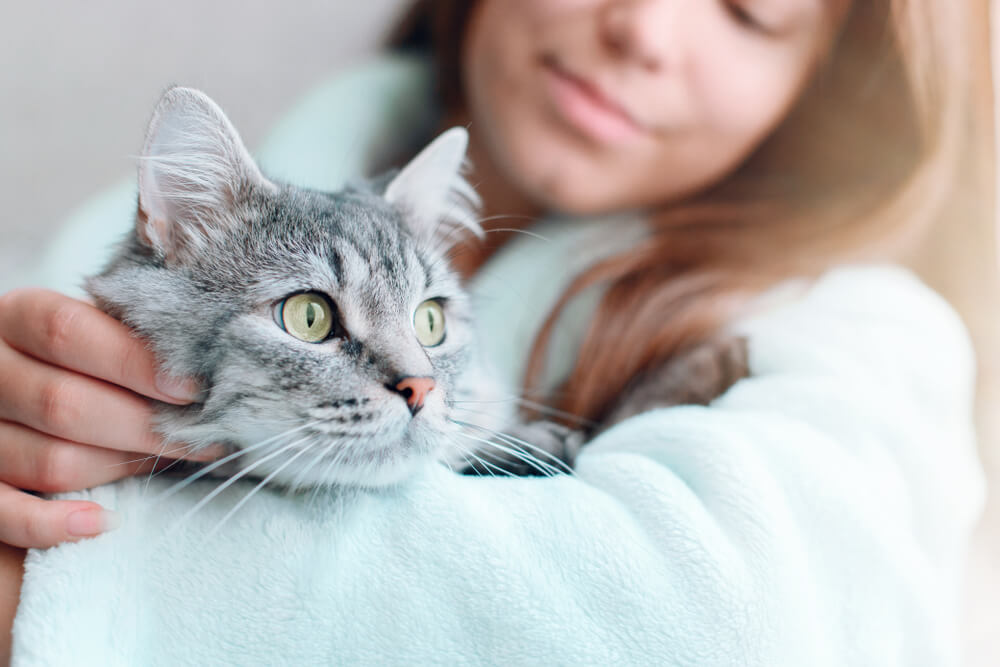
With time, patience, and reassurance, a cat that is behaving differently after a vet visit will return to normal within days.
Bringing your cat to the vet can be stressful and they may act as if they don’t trust you afterwards. You can reduce stress from the moment you place the cat in their carrier, during the car journey, and at the veterinary clinic. There are many cat-friendly clinics, fear-free certified clinics, or even cat-only vets that are trained to help to reduce the stress of the veterinary visit for your cat. Regardless, your cat will trust you again after they visit the vet – they may just need some time and space (and treats and cuddles).
Also Read: How Often Should Your Cat Visit The Vet?
Frequently Asked Questions
How do I regain my cat's trust after the vet?
After a veterinary visit, be patient and gently with your cat. Offer reassurance, cuddles and plenty of treats. Give them space if they want it.
Why is my cat aggressive with me after a vet visit?
Cats can often be stressed after a veterinary visit and they may act aggressively as a result of fear and anxiety. Be patient and gentle with them, plug in a synthetic pheromone diffuser, and keep the environment relaxed.
Is it normal for cats to act weird after a trip to the vet?
Cats may be stressed and anxious right after a veterinary visit but this will usually wear off after 24-48 hours. They may also act differently if they’re unwell, so discuss this with your vet.
Do cats forgive you after taking them to the vet?
Yes, cats will definitely forgive you after taking them to the vet! They just need some time to relax and de-stress after their ordeal. It’s very important to bring them to the vet for preventive treatment and when they’re unwell.
Why is my cat acting distant after the vet?
Veterinary visits often include barking dogs, examinations, injections, and medication. It’s understandable that cats are often stressed after a veterinary visit and they may act differently than normal. They will usually relax after a short period of time.

